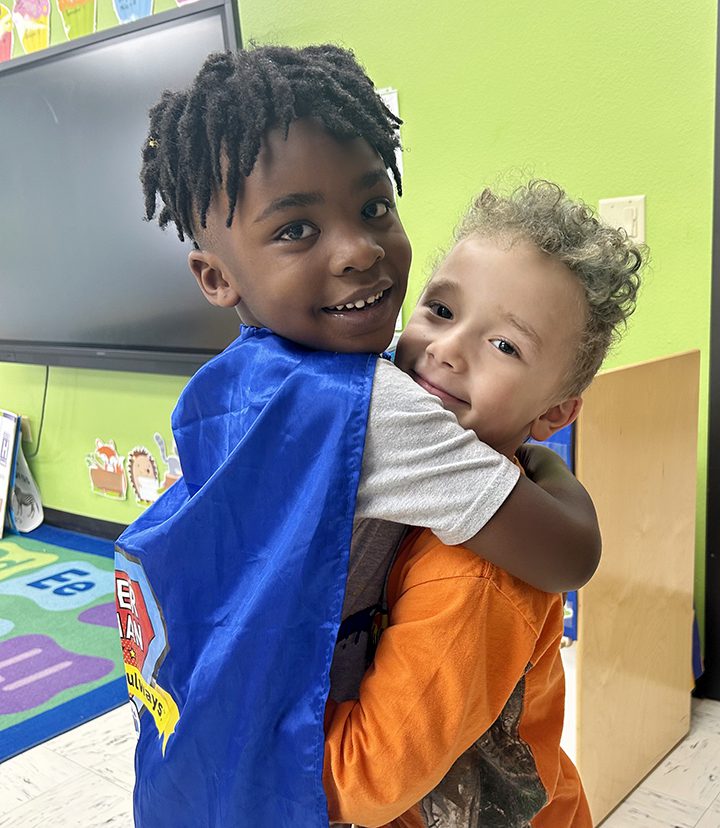Screen Overload: The Link to Anxiety, Aggression & Low Self-Esteem in Kids
July 7, 2025
Growing screen time among children isn’t just a harmless habit — it’s increasingly tied to emotional and behavioral challenges.

A new meta-analysis published in Psychological Bulletin examined nearly 300,000 children and found a strong link between screen time and mental health. More screen use was tied to:
- Anxiety
- Aggression
- Low self-esteem
While violent content is often to blame, researchers found that it’s the amount and type of screen use that matters most. Gaming, regardless of genre, was more strongly linked to emotional and behavioral issues than TV or educational apps.
Given these findings, it’s crucial to help children build social and emotional skills to manage stress and boost self-worth offline. That’s where Respectful Ways comes in — trauma-informed curriculum proven to foster empathy, resilience, and respectful behavior through practical lessons and activities. This strengthens their social skills and emotional intelligence, ultimately supporting real-world connections in kids.
Tools like Let’s Chat Conversation Cards make it easy to spark meaningful, relationship-building conversations in just minutes—helping kids connect more deeply in a world full of digital distractions.
Tips to Restore Balance
Not all screen time is harmful—moderate, purposeful use can be healthy. Balance is key.
 The American Academy of Pediatrics recommends limiting recreational screen time to one hour on weekdays and three on weekends for kids aged 2 to 5. Yet, over 40% of kids aged 8–12 exceed four hours daily. As Dr. Tara Narula notes, rising childhood mental health issues make understanding screen effects more urgent than ever.
The American Academy of Pediatrics recommends limiting recreational screen time to one hour on weekdays and three on weekends for kids aged 2 to 5. Yet, over 40% of kids aged 8–12 exceed four hours daily. As Dr. Tara Narula notes, rising childhood mental health issues make understanding screen effects more urgent than ever.
Instead of banning screens, set limits and prioritize real-world interaction. Kids need connection, play, and face-to-face relationships to process emotions.
Here’s how to restore balance:
- Set screen-time schedules – prioritize school work, sleep, physical activity, and social interaction.
- Offer alternatives – encourage creativity, such as arts, reading, or outdoor play.
- Share screen time – make it a discussion-based experience.
- Model healthy digital habits – kids learn mostly from what we do, not just what we say.
- Integrate Respectful Ways – help kids understand their feelings, cope with stress, and build emotional intelligence.
- Use tools like Let’s Chat conversation cards to foster meaningful dialogue, learn different perspectives and build connections at home and in school.
A Call to Action for Parents and Educators
R aising emotionally healthy kids is a shared responsibility. Schools, caregivers, and public health must work together to promote media literacy, set boundaries, and support mindful screen use.
aising emotionally healthy kids is a shared responsibility. Schools, caregivers, and public health must work together to promote media literacy, set boundaries, and support mindful screen use.
Tools like Respectful Ways and Let’s Chat cards help kids grow socially, emotionally, and academically. It’s time to choose connection over consumption—online and off.
Author: Kim Celotto for Respectful Ways
 Respectful Ways is a provider of trauma-informed educational resources.
Respectful Ways is a provider of trauma-informed educational resources.
Our evidence- and research-based PreK-12 curriculum helps students and educators manage issues like bullying, mental health, personal safety, conflict resolution, and emotional regulation. Respectful Ways is proven to raise student academics and increase attendance, while reducing behavioral incidents. We are dedicated to addressing the unique needs of all learners, which enables school districts to implement meaningful, lasting improvements to their school climate and culture. *Data shows improving school culture increases academics.
This entry was posted in Blogs, SEL News. Bookmark the permalink.


 Our 1st graders loved the Be Kind: It Feels Good course. The Kindness Hunt and bucket filling activities were the best. Very engaging.
Our 1st graders loved the Be Kind: It Feels Good course. The Kindness Hunt and bucket filling activities were the best. Very engaging. The Bored, Get Creative module was perfect for our 4th graders pre-winter break. We talked about things they could do if “bored”.
The Bored, Get Creative module was perfect for our 4th graders pre-winter break. We talked about things they could do if “bored”.